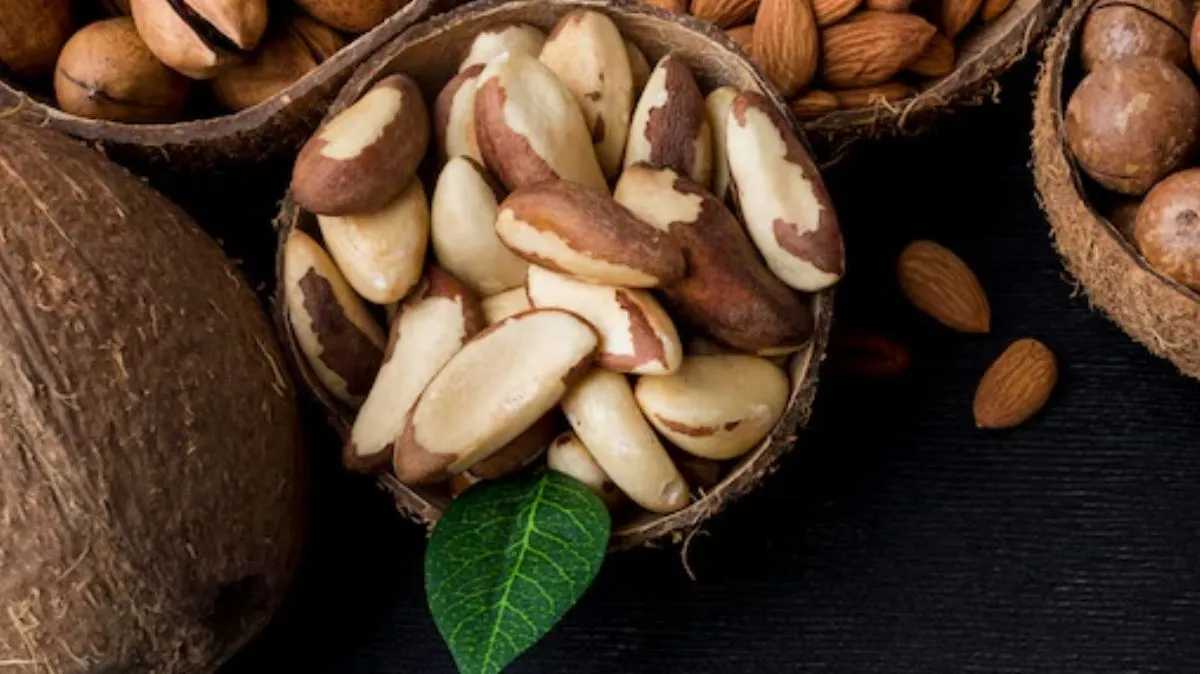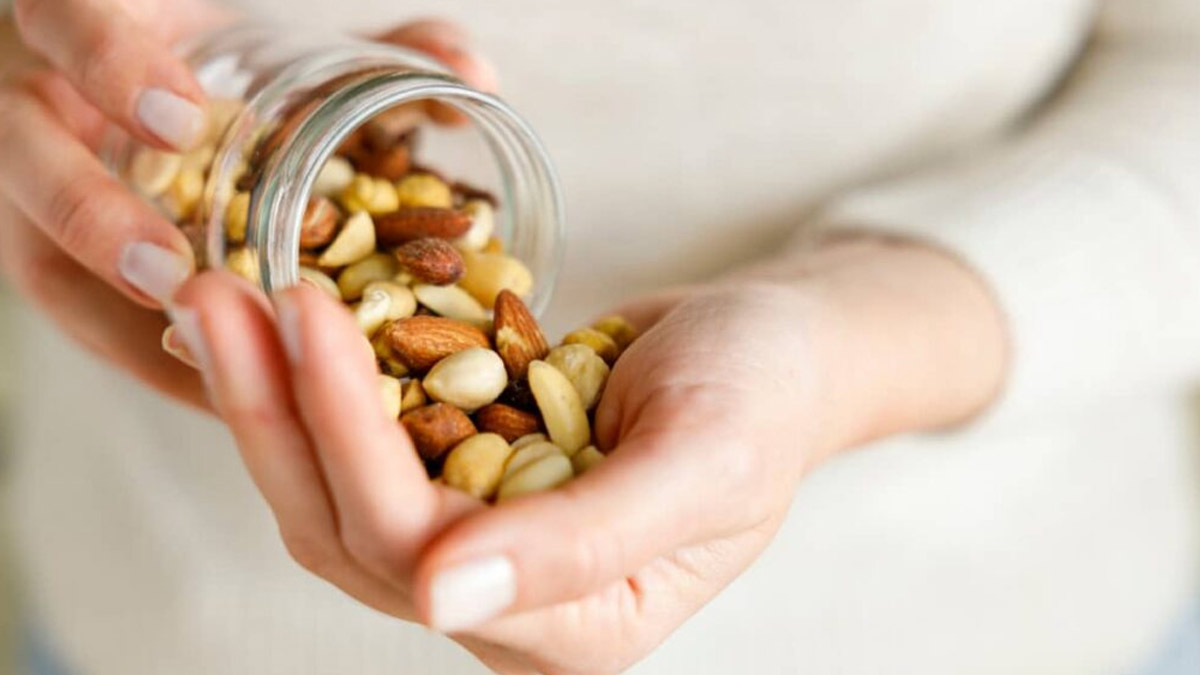
Brazil nut can feel like a little indulgence with its subtly sweet taste, and creamy crunch but these nutritional powerhouses pack a significant punch. Often touted for their high selenium content, incorporating Brazil nuts into your daily diet can offer some compelling health benefits. However, before you make them a daily habit, there are a few crucial things you should know to ensure you're reaping the rewards without any potential downsides.
Table of Content:-
Things To Know Before Having Brazil Nuts Every Day
Let's delve into the seven key considerations before you embrace the daily Brazil nut ritual:
1. Selenium Superstars
Brazil nuts are exceptionally rich in selenium, a vital trace mineral that acts as a potent antioxidant, supporting thyroid function, boosting the immune system, and contributing to DNA synthesis. In fact, just one Brazil nut can contain anywhere from 68 to 91 micrograms (mcg) of selenium, and sometimes even more!
While selenium is essential, the upper tolerable limit for adults is 400 mcg per day. Consuming too much selenium can lead to selenosis, a condition with symptoms like hair loss, brittle nails, gastrointestinal issues, fatigue, and nerve damage.
Key Takeaway: Due to their high selenium content, moderation is key. You likely don't need more than one or two Brazil nuts per day to meet your selenium needs.

Also Read: Can Adding Salt to Watermelon Boost Your Hydration? Experts Weigh In
2. Thyroid Health
Selenium plays a crucial role in the proper functioning of the thyroid gland. It's involved in the production of thyroid hormones and helps protect the thyroid from oxidative damage. Adequate selenium intake is vital for preventing conditions like hypothyroidism (underactive thyroid) and Hashimoto's thyroiditis (an autoimmune thyroid disorder).
However, as highlighted earlier, excessive selenium can also be detrimental. Some studies suggest that very high levels of selenium might paradoxically increase the risk of thyroid dysfunction in susceptible individuals.
Key Takeaway: While beneficial in appropriate amounts, the high selenium in Brazil nuts necessitates mindful consumption, especially if you have pre-existing thyroid conditions. Consult your doctor about optimal selenium intake.
3. Heart Health Helpers
Brazil nuts are a good source of heart-healthy monounsaturated and polyunsaturated fats. These fats can help lower "bad" LDL cholesterol levels and raise "good" HDL cholesterol levels, contributing to a reduced risk of heart disease.
Furthermore, they contain other beneficial nutrients like magnesium, which helps regulate blood pressure, and fiber, which also supports cardiovascular health.
Key Takeaway: In moderation, the healthy fats and minerals in Brazil nuts can contribute positively to your cardiovascular well-being.
4. Antioxidant Powerhouse
Beyond selenium, Brazil nuts contain other antioxidants, including vitamin E and phenolic compounds. These compounds help neutralize harmful free radicals in the body, which are linked to chronic diseases and premature aging.
Key Takeaway: Regular consumption of Brazil nuts in appropriate amounts can bolster your body's defense against oxidative stress.

5. Calorie and Fat Content
While the fats in Brazil nuts are healthy, they are still calorie-dense. One ounce (about 6-8 nuts) contains roughly 185 calories and 19 grams of fat. If you're not careful with portion sizes, the calories can add up, potentially leading to weight gain over time.
Key Takeaway: If you're watching your calorie intake, be mindful of how many Brazil nuts you're consuming daily. Sticking to one or two is a good strategy.
6. Potential Allergies
Like other tree nuts, Brazil nuts are a potential allergen for some individuals. Symptoms of a Brazil nut allergy can range from mild (itching, hives) to severe (anaphylaxis, a life-threatening reaction). If you have a known nut allergy, you should strictly avoid Brazil nuts. Even if you haven't been diagnosed with a nut allergy, be aware of any unusual symptoms after consuming them.
Key Takeaway: If you have any history of nut allergies or experience any allergic reactions after eating Brazil nuts, discontinue consumption and consult an allergist.
7. Sustainability Concerns
Brazil nut trees are native to the Amazon rainforest and play a vital role in the ecosystem. However, unsustainable harvesting practices can threaten the environment. Opting for Brazil nuts that are sustainably sourced can help support conservation efforts and ensure the long-term availability of this valuable food. Look for certifications or brands that prioritize ethical sourcing.
Key Takeaway: Consider the origin and sustainability practices associated with the Brazil nuts you purchase.
Authentic Study Spotlight
A study published in the European Journal of Nutrition (2013; 52(8): 1901-1907) investigated the effects of Brazil nut consumption on selenium status and blood lipids in healthy volunteers. The study found that consuming just one Brazil nut per day for eight weeks was effective in increasing serum selenium levels and improving total and LDL cholesterol concentrations. This highlights the potency of even small amounts of Brazil nuts in influencing health markers.
Bottomline
Incorporating Brazil nuts into your daily diet can offer significant health benefits, primarily due to their high selenium content and healthy fats. However, moderation is crucial to avoid exceeding the upper limit for selenium intake and managing calorie consumption. By being mindful of these seven key considerations, you can enjoy the nutritional advantages of Brazil nuts safely and effectively. Remember, consulting with a healthcare professional or registered dietitian can provide personalized guidance based on your individual health needs.
Also watch this video
How we keep this article up to date:
We work with experts and keep a close eye on the latest in health and wellness. Whenever there is a new research or helpful information, we update our articles with accurate and useful advice.
Current Version